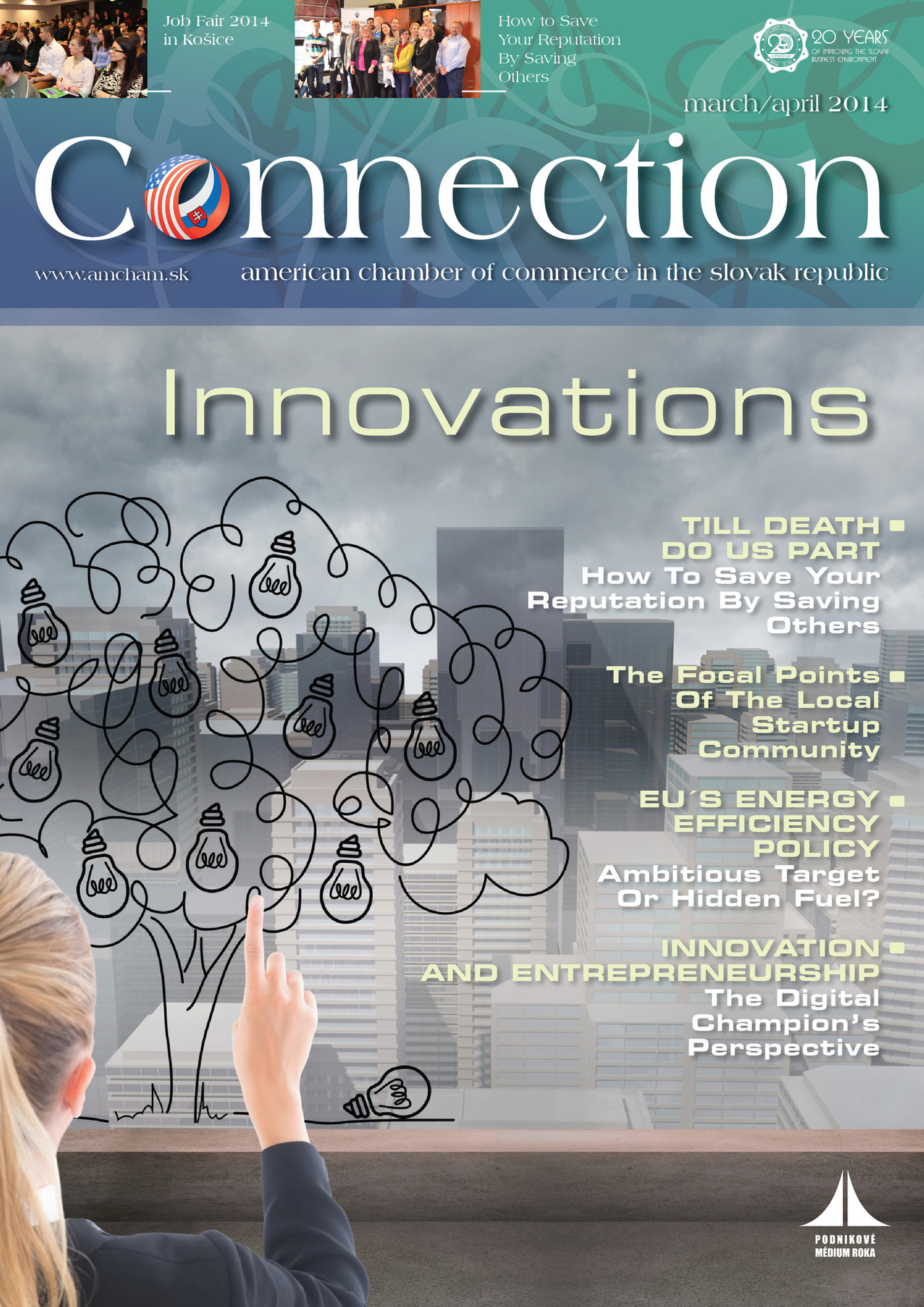From your experience, what are the biggest obstacles currently facing young innovative companies in Slovakia?
Based on my personal experience, as well as the discussions I’ve had with the people behind Slovak startups in which I took part, I would say that the biggest problem young innovative companies in Slovakia have to face is the lack of a functional ecosystem. There is no existing model in place to support the creation of small companies, especially in the initial phase of their existence when it’s still unclear if the idea that is being developed will have commercial potential on the market. It is during this early stage that young entrepreneurs have a tough time to find the financial resources to kick off their business, as well as find a premises, or mentors who can offer real experience which could guide them and help them bring their idea to a point where it could apply for different loans and capital funding.
As State Secretary at the Ministry of Finance, and the Digital Champion, how do you participate in supporting Slovak startups?
Several measures supporting SMEs have been implemented in Slovakia, and these also apply to startups. Currently, The Ministry of Economy is the most important institutional actor supporting entrepreneurism in Slovakia, which it does through programs of state funding realized by the Slovak Business Agency.
For a country as small as Slovakia, the optimal solution is to centralize all existing forms of help into one common point, which would offer complex support for entrepreneurs at national, regional and local levels. Based on input from members of the advisory team of the Digital Champion, as well as the community involved in the development and support of the Internet economy in Slovakia, I initiated the realization of concrete steps aimed at defining and setting up a legitimate model/mechanism, as well as the preparation of related materials for the allocation of financial resources of more than one million euros for 2014, which will come from the state budget. These funds will be used for creating a favorable environment, which will stimulate the creation and development of young innovative businesses, directly support concrete business ideas, and encourage the involvement of the most promising Slovak startups into international business networks.
We are currently finalizing the formulation of two new state programs, in cooperation with SBA. One of these is aimed at supporting entrepreneurship and startups, the other one is aimed at the development of the internet economy in Slovakia. The first calls within the mentioned state programs will be made public this fall.
It is crucial to ensure the future sustainability of all activities which are aimed at supporting entrepreneurship. That is why the proposed programs are all prepared and budgeted for a period of three years.
You have mentioned a state program which is aimed at the development of the Internet economy. How do you perceive the potential of the Internet economy in Slovakia, and how do you plan to expand it further?
The concept of the internet economy in Slovakia is perceived rather narrowly, and is often connected solely with the IT sector and software development. I personally perceive the potential of the internet economy in Slovakia as having a much wider scope. I see a lot of potential in particular through supporting the classic manufacturing companies, which face an obstacle in the form of a small market, which is often limited to their specific region. These are the cases where an online presence could result in a major positive impact. The manufacturer of Tuli bean bags, or the manufacturer of Javorina luxury furniture, are both successful thanks to an effective online strategy aimed at new markets. Simply put, Slovak companies lack a manual detailing “how it can be done”. That is why we are working on creating a second state program, aimed at supporting the business development of companies as well as their education in the area of online tools, applications and ICT, to help our local businesses transform into global ones. We are convinced that the promotion of success stories will act as effective inspiration for other Slovak projects, and will help them to overcome the barriers which have prevented them from utilizing the full potential of the internet economy.
Peter Pellegrini, State Secretary of the Ministry of Finance of the Slovak Republic & Digital Champion



Follow us